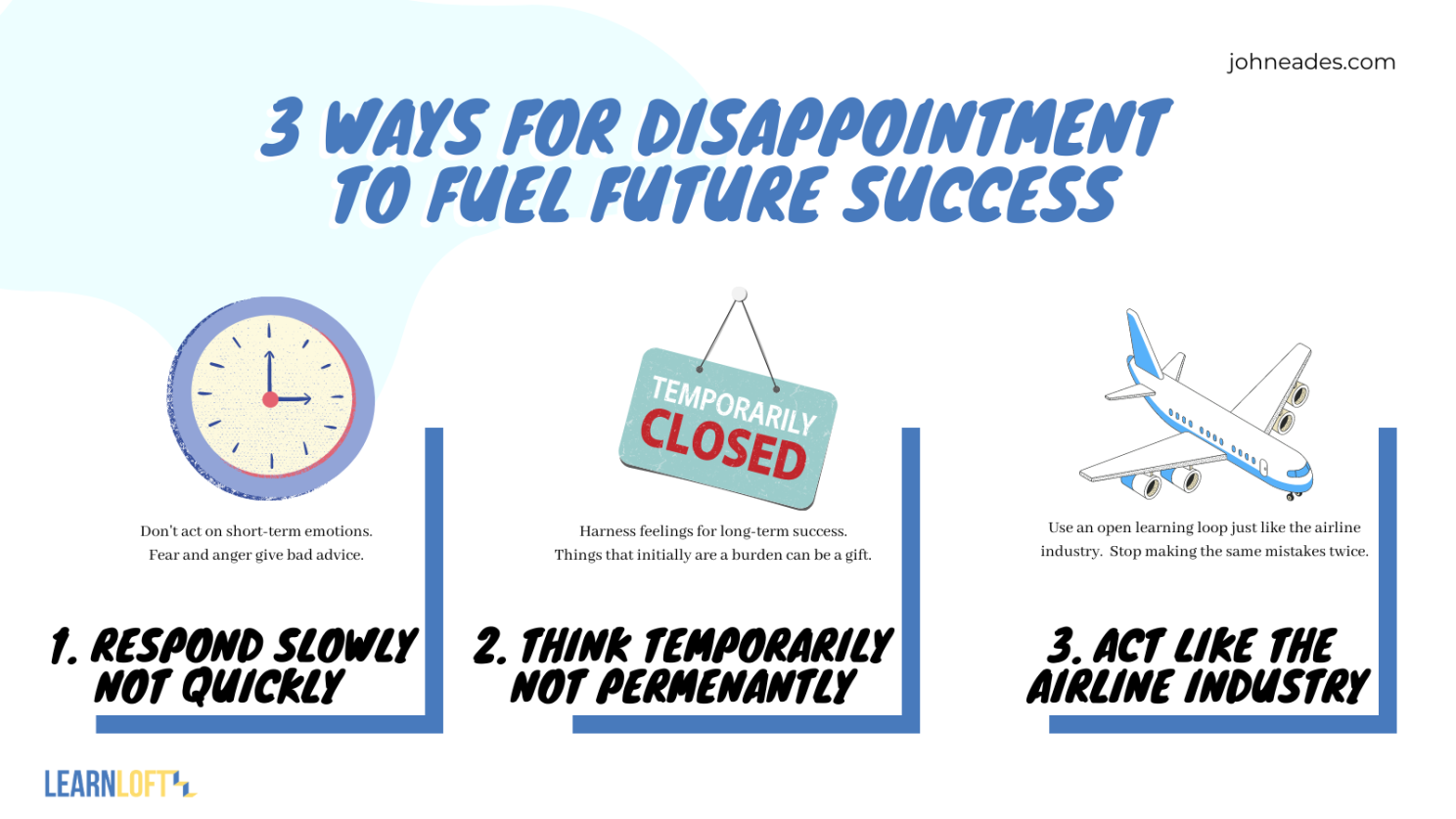Comments
- No comments found

The gap between your expectations and reality is a challenging place to be.
Your professional and personal life is filled with moments that you would prefer not to happen. Moments like losing a big deal, being fired, missing a quota, closing a small business, or a failed marriage. This list stirs up some profound emotions, specifically disappointment. You have experienced it in various shapes and sizes.
Handling disappointment well individually is one thing, but what about when you lead a team? Invariably you won't be the only person disappointed and questioning whether you are worthy enough of success.
So, how can leaders handle disappointment the right way?
Disappointment is the feeling of dissatisfaction that follows the failure of expectations or hopes to manifest. I summarize it for coaching clients as the gap between our expectations and reality. Being disappointed is a part of life unless you have depressingly low standards. When you experience disappointment, you are tested and stretched, which expands your capacity. Which might sound rough, but it's critical because:
Only leaders who are tested become great.
Disappointment and failure are a part of life. Anyone can play a winning hand with good cards in poker – the elite players can play winning hands from bad cards by their attitude and how they play.
Spencer Bethmann, with KPMG, told me in an interview, "In life and business – failure or disappointment will happen, but how you handle it counts. Particularly for leaders, your teams will be watching how you handle it – if you use those 'negative' things to learn and grow, you can pass that attitude and mindset to your team."
Bethmann is right because leadership is caught more than taught, and your example will always be more powerful than your words.
Your example of leadership will always be more powerful than your words.
How you respond to disappointment separates the good from the great. You get to choose how you and your team react to the frustration. The best leaders remember the equation E + R = O.
Event + Response = Outcome
The best way to handle disappointment is to prepare and plan for it because it's not a matter of if but of when. So don't expect things to be easy; prepare for them to be hard.
If you are currently experiencing disappointment or want to use it to fuel future success, here are some things to remember:

Disappointment creates complicated emotions like fear and anger that even the best leaders struggle with. The challenge is not acting on those short-term emotions because, as Matt Mochary said on the Tim Ferriss Podcast, "fear and anger give bad advice."
Fear and anger give bad advice.
Give yourself and your team time to be thoughtful and level-headed before making any decision. Often, people uncover that they've put a false sense of importance on things that don't matter to them in the long term.
Most people take those feelings of disappointment and shove them in a drawer, never again to be reopened. Great leaders harness those feelings and use them for long periods as fuel for their team. Instead of looking at the disappointment as permanent, view it as temporary.
Stop looking at disappointment as permanent, view it as temporary.
When you take this approach, things that initially look like a burden are a gift. Your responsibility as a leader is to highlight the gift this disappointment can be to your team if it's used correctly. If so, it can inspire innovation, improve teamwork, and fuel future results.
The only thing worse than experiencing disappointment once is experiencing disappointment again for the same reason. Take the airline industry as an example. There are two black boxes on every airplane; if an accident happens, the boxes are opened to learn precisely what went wrong. Every pilot in the world has free access to the data. This is not just to scratch the curiosity itch but to learn from mistakes so they don't happen again.
For your team to progress from disappointment, use an open loop of learning, much like the airline industry. Open a journal and write down things you experienced or want to learn. Have what we call "Disappointment Debriefs." These are collaborative meetings to answer the following questions honestly and without judgment:
What did we underestimate?
Where did we make mistakes?
How will we do it differently next time?
Do we genuinely care about this enough to proceed again?
There is nothing fun about experiencing disappointment. However, if you respond slowly, not quickly, think temporarily, not permanently, and act like the airline industry, you and your team will come out better on the other side.
John is the CEO of LearnLoft, author of, F.M.L. Standing Out & Being a Leader and host of the 'Follow My Lead' Podcast. He writes or has been featured on Inc.com, LinkedIn Pulse, TrainingIndustry.com, eLearningIndustry.com, CNBC Money, and more. John completed his education at the University of Maryland College.
Leave your comments
Post comment as a guest